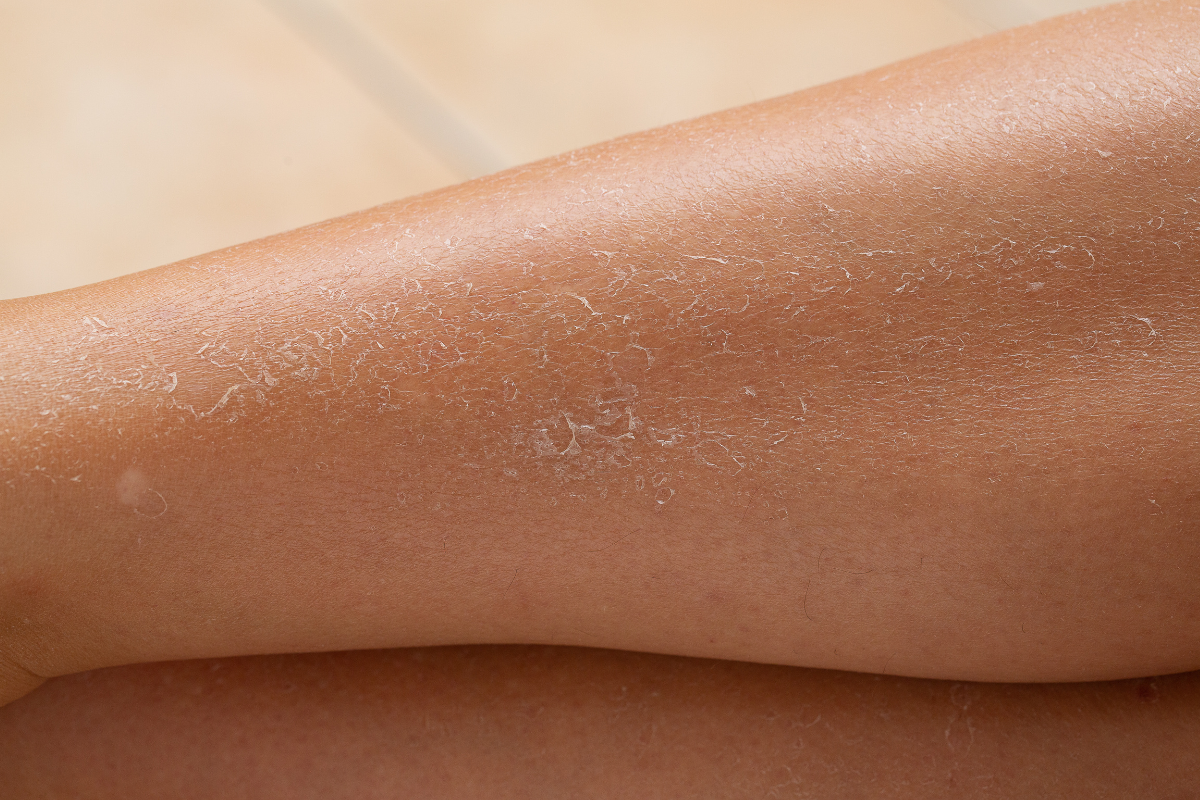
Combating Dry Skin and Managing Eczema
As winter sets in, the drop in temperature often brings about a common skincare woe—dry skin. For individuals with eczema, the colder months can exacerbate symptoms and pose unique challenges. In this comprehensive article, we'll delve into the causes of dry and eczema-prone skin during winter and explore effective strategies for combating these issues.
Understanding Dry Skin in Winter
Causes of Dry Skin:
Winter air is notorious for its low humidity levels, which can lead to increased water loss from the skin. Additionally, indoor heating systems further contribute to dryness by stripping the air of moisture. Lack of hydration, harsh winds, and exposure to extreme temperatures are all factors that can leave your skin feeling tight, flaky, and uncomfortable during winter. These symptoms can worsen for people who have eczema.
Combating Dry Skin:
Hydrate from Within:
- Increase your water intake during the winter months to maintain hydration from the inside out. Adding a natural element such as a dash of Himalayan salt or a squeeze of lime to drinking water helps balance the body’s pH and boost alkalinity.
- Moisturize Regularly: Choose a rich, hydrating moisturizer and apply it immediately after showering to lock in moisture. Our HYDRA+ Deep Hydration Moisture Cream and S-CELL Super Anti-Aging Cream are formulated with collagen, shea butter, and Pseudoalteromonas Ferment Extract (PSE), also known as Antarcticine®, is a glycoprotein derived from the Antarctic sea and contains the following three amino acid residues: glycine, histidine and lysine. It is used in a number of anti-aging products because of its ability to regenerate and protect the skin by retaining moisture and water, heal wounds, increase collagen and elastin production, and improve hydration.
- Use a Humidifier: Adding moisture to the air with a humidifier in your living space can help prevent excessive dryness. Be sure to clean your humidifier to avoid mildew and change the water often.
- Use a hydrating face mist: A hydrating face mist can keep your skin hydrated, protect from environmental stressors and even offer some protection from the harsh effects of blue light coming from our screens. We’ve linked our very own Hydra+ Vitamin Mist because it checks all the marks!
The Impact of Winter on Eczema
Causes of Winter Eczema Flare-Ups:
Individuals with eczema face unique challenges during winter. Cold, dry air can irritate the skin, triggering eczema flare-ups. Excessive use of indoor heating can further sap the skin's natural moisture, leading to increased sensitivity and inflammation. Additionally, skin infections are common in people living with eczema and most people will encounter a bacterial, fungal or viral skin infection therefore, recognizing and treating the infection early on results in a better treatment outcome.
Effective Eczema Management:
Gentle Cleansing: Opt for gentle cleansers to avoid further irritating sensitive skin.
- Hydrating Baths: Take short, lukewarm baths, and add colloidal oatmeal or a few drops of natural oils like jojoba or almond oil to soothe the skin.
- Fragrance-Free Products: Choose skincare products that are fragrance-free, as fragrances can be a common trigger for eczema.
- Prescription Treatments: In severe cases, dermatologists may prescribe topical corticosteroids or other medications to manage eczema symptoms.
- Moisturizers: Use a moisturizer after each shower and be sure to moisturize hands after every hand wash. Avoid using antibacterial hand soaps often as they can dry out the skin and compromise the skin's microbiome.
Holistic Skincare Approaches to Dry Skin and Eczema
Dietary Considerations:
- Omega-3 Fatty Acids found in the following foods:
- Cold water fatty fish, such as salmon mackerel, tuna, herring and sardines.
- Nuts and seeds, such as flaxseed, chia and walnuts.
- Plant oils such as flaxseed oil, soybean oil and canola oil.
- Omega-3 dietary supplements such as krill, fish, cod liver and algal oils provide a wide range of doses and forms of omega-3s.
- Consume vitamin-rich foods high in vitamins A, C, and E, which play crucial roles in maintaining skin integrity. Some examples include:
- Vitamin A- leafy green vegetables, orange and yellow vegetables and fish oils.
- Vitamin C- Citrus fruits (orange, kiwi, lemon, grapefruit), bell peppers, and white potatoes.
- VItamin E- sunflower seeds, almonds, peanuts/peanut butter, beet greens (collard greens, spinach) and red bell peppers.
Mind-Body Connection:
- Stress Management: Stress can exacerbate eczema symptoms however connecting our mind and body helps alleviate stress.
- Practice stress-reducing activities like meditation or yoga.
- Practice breathwork or breathing exercises. This doesn't require a lot of time and can be done anywhere. Many phone apps are now available that allow you to set reminders, time increments and notes.
Natural Remedies:
- Coconut Oil: Apply virgin coconut oil to the body to provide a natural barrier against moisture loss. Avoid applying coconut oil to the face as it can clog pores and instead, stick to your facial moisturizer.
- Aloe Vera: The soothing properties of aloe vera can be beneficial for calming irritated skin. Look for creams or gels that have minimal ingredients and fragrance-free. Aloe vera gel is also great to use on the body after being in the sun or if you experience a light sunburn.
Combatting dry skin and managing eczema during winter requires a multifaceted approach. From adopting a diligent skincare routine to considering lifestyle and dietary factors, there are numerous strategies to keep your skin healthy and comfortable. Remember, it's essential to consult with a dermatologist for personalized advice and treatment options tailored to your specific needs.
By taking proactive steps and incorporating these practices into your winter skincare routine, you can navigate the colder months with a glowing complexion and minimized eczema symptoms.



Comments (0)
Back to MIRACO BEAUTY BLOG